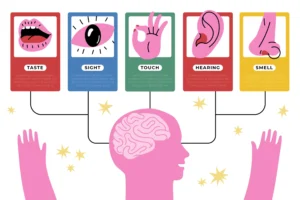 Neurodevelopmental disorders encompass a range of conditions that affect the development of the nervous system, impacting cognitive, emotional, and behavioral functioning. Understanding the signs, types, treatment options, and preventive measures is crucial for effectively addressing these disorders.
Neurodevelopmental disorders encompass a range of conditions that affect the development of the nervous system, impacting cognitive, emotional, and behavioral functioning. Understanding the signs, types, treatment options, and preventive measures is crucial for effectively addressing these disorders.
Collaborative efforts involving healthcare professionals, educators, policymakers, and families are essential in addressing the complex needs of individuals with neurodevelopmental disorders.
Recognizing Signs of Neurodevelopmental Disorders
Neurodevelopmental disorders can manifest in various ways, but common signs may include:
- Delays in reaching developmental milestones
- Challenges with social interactions and communication
- Repetitive behaviors or restricted interests
- Learning difficulties or intellectual disabilities
- Impulsivity or hyperactivity
Recognizing these signs early allows for timely intervention and support.
Types of Neurodevelopmental Disorders
Neurodevelopmental disorders encompass a spectrum of conditions, including:
- Autism Spectrum Disorder (ASD)
- Attention-Deficit/Hyperactivity Disorder (ADHD)
- Intellectual Disability (ID)
- Specific Learning Disorders (e.g., dyslexia)
Each disorder presents with unique characteristics and challenges, requiring tailored interventions and support strategies.
Treatment Options for Neurodevelopmental Disorders
Effective management of neurodevelopmental disorders often involves a multidisciplinary approach, including:
- Behavioral therapies such as Applied Behavior Analysis (ABA) or Cognitive Behavioral Therapy (CBT) to address specific symptoms and improve functioning.
- Medications may be prescribed to manage symptoms associated with ADHD, anxiety, or mood disorders.
- Educational interventions and Individualized Education Programs (IEPs) to support learning and academic achievement.
- Occupational therapy, speech therapy, and social skills training to enhance daily functioning and social interactions.
- Family counseling and support groups provide guidance and emotional support to individuals and their families.
Preventive Measures
While not all neurodevelopmental disorders are preventable, certain preventive measures can reduce the risk or severity of these conditions:
- Prenatal care. Ensuring proper prenatal care, including regular medical check-ups and avoiding harmful substances like alcohol or tobacco, can promote healthy brain development in the fetus.
- Early intervention. Identifying and addressing developmental delays or risk factors early can prevent or mitigate the impact of neurodevelopmental disorders.
- Environmental modifications. Creating supportive and stimulating environments at home, school, and in the community can enhance the development and well-being of individuals at risk for neurodevelopmental disorders.
By understanding the signs, types, treatment options, and preventive measures for neurodevelopmental disorders, we can better support individuals affected by these conditions and promote their overall well-being and quality of life.
Picture Credit: Freepik
